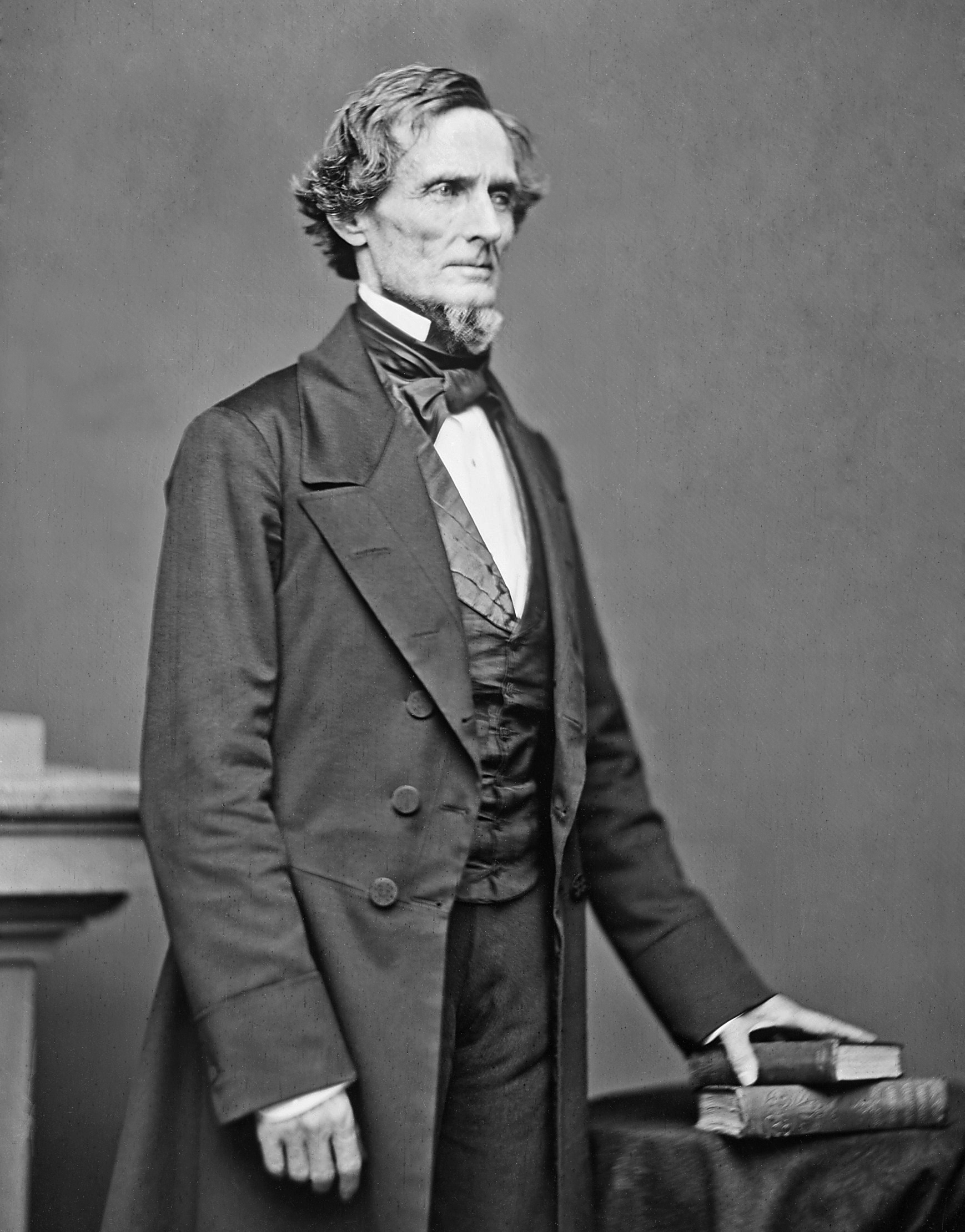How Our Most Basic Right is. . . Right!
Since the election of Barack Obama, a growing number of patriots have “woken up” as radio talk show host Glenn Beck likes to put it. The tea party movement has become the face of a new movement for fiscal accountability and constitutional limitations. As tea party candidate and senate seat hopeful Rand Paul said on CNN two days ago,“The Tea Party Movement is about constitutional government!” People are starting to realize just how far off course our republic has drifted upon reading the founding documents of America. State sovereignty, nullification, and even secession are once again dinner conversation topics resurrected from their long absence from American political discourse. Though the progressive hijackers of academia have for over a century worked tireless hours attempting to bury such notions as state sovereignty, the truth is suddenly gaining a foothold. The State Sovereignty that “died at Appomattox” is living once again.
While secession still remains an increasingly divisive topic (no pun intended) due to accusations of racism and anti-patriotism against anyone who so much as hints at the possibility, it should be known that such a notion is not the possession of a fringe group, but rather is a birthright all Americans share. Some public figures have taken up the cause beside Governor Rick Perry in defense of this noble American entitlement (in the true sense of the word). Senator Ron Paul, Judge Andrew Napolitono, and Glenn Beck have all made sympathetic remarks in favor of secession, and it’s starting to become mainstream. In an April 2009 poll of 106 listeners of the Sean Hannity Show, 44.34% stated that secession was not “anti-American.” A July 2008 Zogby poll in which 1,209 Americans were questioned concluded that one out of every five (20%) American adults believe that, “any state or region has the right to peaceably secede from the United States and become an independent republic.” Over 18% said they would support a secession movement in their own state. Perhaps not so surprisingly, the percentage of secession advocates was highest in the south regionally. However, ethnically speaking, blacks were the most likely to support a state movement. Almost every area of the country has some kind of local secession movement. The four most notable groups include “The League of the South,” a Neo-Confederate group which has been increasing its membership as of late, “The Alaska Independence Party”, which former vice-presidential candidate Sarah Palin’s husband was a member of, The “Second Vermont Republic,” which maintains 13% of its home state’s support, and the Texas Nationalist movement which has received the most press in the past year. Rick Perry’s April 15th 2009 comments have done much to put secession back on the table in the minds of many conservatives.
“Texas is a unique place. When we came into the union in 1845, one of the issues was that we would be able to leave if we decided to do that. My hope is that America and Washington in particular pays attention. We’ve got a great union. There’s absolutely no reason to dissolve it. But if Washington continues to thumb their nose at the American people, who knows what may come of that.“
Of course, if you’re an anchor on MSNBC this could perhaps cause you to have conniptions as Chris Matthews did. But if you’re a Middle American who’s fed up with deficit spending and unconstitutional governance, Perry’s words were a breath of fresh air. In a recent poll of 2,003 Republicans, the Daily Kos/Research Center showed that 33% of Southerners answered “Yes” to the question, “Do you believe your state should secede from the United States?” while the national average for a “Yes” answer was 21%. Putting this number in perspective – it was only 40-45 % of white Americans who supported the Patriot’s cause in the first American war for secession – the War for Independence. As the writer for the League of the South’s blog commented, “So we’re half-way there, folks.”
Even if you personally don’t believe your state would be better off without federal intrusion, an honest account of history demands at the very least an approving nod to its legality. Secession was and is a brilliant mechanism whereby tyranny is checked. If you’ll recall, the founders set up our federal government upon the notion that unlimited power is apt to corrupt the minds of those who possess it. Calvinism held sway in both American religious and political philosophy. In order to stifle the propensity of man toward acquiring power and using it for selfish ends, checks must be put in place to purposely make the government dysfunctional, and therefore render it unable to amass power. It was the Virginian Thomas Jefferson who stated:
“An elective despotism was not the government we fought for, but one which should not only be founded on true free principles, but in which the powers of government should be so divided and balanced among general bodies of magistracy, as that no one could transcend their legal limits without being effectually checked and restrained by the others.”
In elementary school every child is taught there are three major branches of government which all have checks and balances on each other – the Executive, the Judicial, and the Legislative. However, today most children aren’t taught about the greatest check of them all: the state governments. Although state power has been slowly eroded by the reconstruction and seventeenth amendments as well as several supreme court decisions, there was a time in our nations history when secession was almost universally accepted as legitimate. This is the reason Lincoln had to sell his decision to invade the South by claiming they fired the “first shot.” (even though no one died in the battle, Lincoln was the aggressor, and it wasn’t the “first” shot) It had to be a rebellion, not secession, in order to justify using Federal arms to the American public. “A View of the Constitution” by William Rawle (which advocates secession as a possibility) was standard curricula at West Point before 1860. It’s important that we as patriots stand up for the same rule of law our founders believed in. Below I have stated reasons for why secession is still a viable option, and completely within the realm of legality.
 1. The Constitution Allows Secession
1. The Constitution Allows Secession
During the Constitutional Convention, a debate emerged regarding the creation of new states from preexisting ones (i.e. like West Virginia being created from Virginia – even though that was done by Lincoln unconstitutionally). John Adams records Governor Morris of Pennsylvania’s (who actually wrote the constitution) two cents in the convention minutes. He stated:
“If the forced division of the States is the object of the new System, and is to be pointed against one or two States, he (Morris) expected, the gentlemen from these would pretty quickly leave us.”
i.e. Governor Morris assumed that secession itself was an assumed privilege the sovereign states held. But why was he able to make such a remark? The answer boils down to three things: A. The Tenth Amendment, and B. The Articles of Confederation, and C. The Ratification Papers. The Tenth Amendment clearly states,:
The powers not delegated to the United States by the Constitution, nor prohibited by it to the States, are reserved to the States respectively, or to the people.”
This begs the question, “Where in the constitution does it talk about the federal government being able to kick states out of the union?” The answer is, “It doesn’t.” The question of secession is therefore a question left up to the individual states. They alone have the power to leave. In addition, a quick comparison between the Articles of Confederation and the Constitution will clearly show some key differences. One of them is that the Articles didn’t allow secession. Article XIII states:
“And the articles of this confederation shall be inviolably observed by every state, and the Union shall be perpetual;. . .” it goes on to say, “. . . nor shall any alteration at any time hereafter be made in any of them (the articles) unless such alteration be agreed to in a Congress of the United States, and be afterwards confirmed by the legislatures of every State.”
The idea of perpetual union (i.e. an unending contract) could not be overturned unless all states unanimously decided it could. Interestingly enough, the Constitution does not invoke the idea of a “perpetual union,” and therefore contrasts itself with the concept of an unending contract. States could end their contract with the federal government whenever they wanted. The Ratification Papers attest to this. Virginia’s ratification agreement with the federal government read:
“. . . the People of Virginia declare and make known that the powers granted under the Constitution being derived from the People of the United States may be resumed by them whensoever the same shall be perverted to their injury or oppression.”
The state of New York included a similar provision. The purpose for joining a republican form of government had everything to do with benefiting the states themselves. Pennsylvanian James Wilson, a delegate to the constitutional convention encouraged his state to ratify the constitution by stating:
“. . . I am sure that our interests, as citizens, as states, and as a nation, depend essentially upon a union. This Constitution is proposed to accomplish that great and desirable end. Let the experiment be made; let the system be fairly and candidly tried, before it is determined that it cannot be executed.”
In the words of Ronald Reagan, “All of us need to be reminded that the Federal Government did not create the states; the states created the Federal Government.”
2. Historical Precedent Implies Secession
When the colonists fought against Britain, they wrote their own pact, the “Declaration of Independence,” to “secure these [inalienable] rights. . . the Right of the People to alter or to abolish it [Government], and to institute new Government.” King George had disbanded their legislative governments and imposed his own rules, even at times jailing representatives through the authority of the royal governors. Today of course, such abuses happen consistently without anyone blinking an eye (think back to Judge Roy Moore and the Ten Commandments). The colonists, outraged as they should have been, declared themselves free of Britain’s unjustified rule. It was no long acting within its constitutional powers, and therefore was illegitimate. When the colonists won, it wasn’t the country of “America” that King George surrendered to but each individual state in the Treaty of Paris. Subsequently, each state retained its sovereignty under the Articles of Confederation (though it could not secede) and under the Constitution.
During the War of 1812 New Englanders seriously considered secession at the “Hartford Convention” in response to the war and Virginia’s political domination. Some wanted to join Canada, others wanted to form their own government. No one seemed to bat an eye or claim, “You guys are way out of line!”
When the South lost the war for their independence Jefferson Davis was not tried for treason simply because of the embarrassing situation it would create. If the supreme court couldn’t convict him, it would fully expose the true motives for Northern aggression and render the whole war essentially unjustified. During his imprisonment and trial (which was thrown out later) the foreign press was not amused – even Pope Pius IX send Davis a crown of thorns. Conveniently, President Johnson declared amnesty for all Confederates toward the end of 1867 which excused a trial in the minds of the North. No lawyer could convict Davis of doing something which was completely legal.
Throughout our nations history, popular sovereignty has remained on the forefront of our foreign policy. We “liberate” communist, Islamic, and other second and third world nations in the name of self determination, however on the home front we have acted like hypocrites since our sympathetic position on the Southwest’s secession from Mexico in the 1840s. The Russian federation deserves to be liberated from its contract with the Soviets, but the various “satellite nations” of America somehow do not deserve the same treatment. Southerners, North Easterners, Mid Westerners, and Westerners all designate various national identities in the U.S. and should be afforded the same opportunities if we are to be consistent.
 Common Sense Legitimizes Secession
Common Sense Legitimizes Secession
In July of last year, president of the Texas National Movement Daniel Miller asked Glenn Beck on his program, “Who would ever enter into some sort of contract where one of the parties broke the contract and the contract was still enforced and you had to live under that abuse?” Glenn Beck’s answer was short and to the point, “No one.” Under the Articles of Confederation, in which states maintained an incredible amount of sovereignty the Federal government was incapable of breaking a contract having almost no power. However, under the U.S. Constitution the threat became greater, and state’s would have been foolish to enter into death wish. The equivalent would be a woman who marries a man who turns out to be abusive and unfaithful and then is kept by force in her contract and is required to fulfill her marital prerogatives. Were the American people really that unwise? Of course not!
In conclusion, it should seem evident that secession is an American tradition started during the very war that gave birth to our nation. The right to secede is a right which keeps the federal government from becoming a tyrant. It is the last refuge of any free people, but a refuge which must be defended nonetheless. Without the ability to leave tyranny, we are forced into slavery, which is exactly what’s happening in modern America. The Tea Party movement provides some hope that this issue will become a serious issue once again as people began to seriously look at the Constitution and our original secession pact The Declaration of Independence. When the government is threatened by the prospect of losing control and tax revenue it becomes willing to negotiate. That was the whole point of the right to secession, and that right hasn’t evaporated, it’s just been buried. Looking back over our centuries of existence, “experience hath shewn, that even under the best forms of government those entrusted with power have, in time, and by slow operations, perverted it into tyranny.” (Thomas Jefferson) Educate yourself with the facts. Relearn your American history, and let others know about our rights as Americans. . . all of them.
In the words of Confederate President Jefferson Davis
“Truth crushed to the earth is truth still and like a seed will rise again.“


